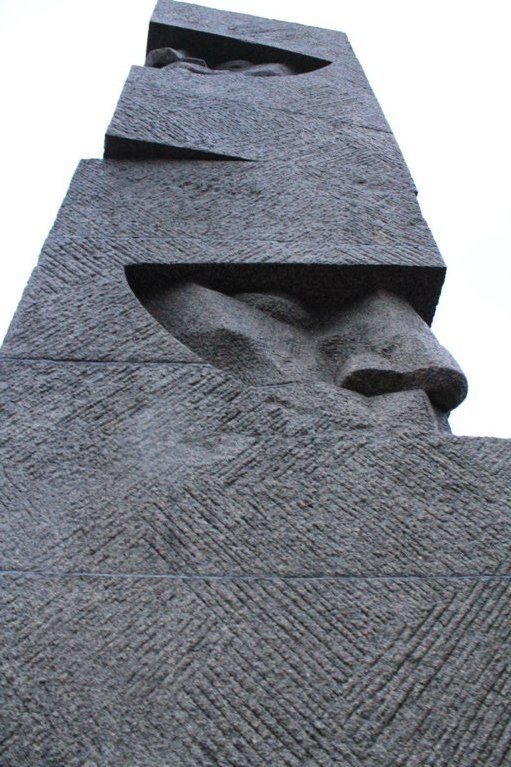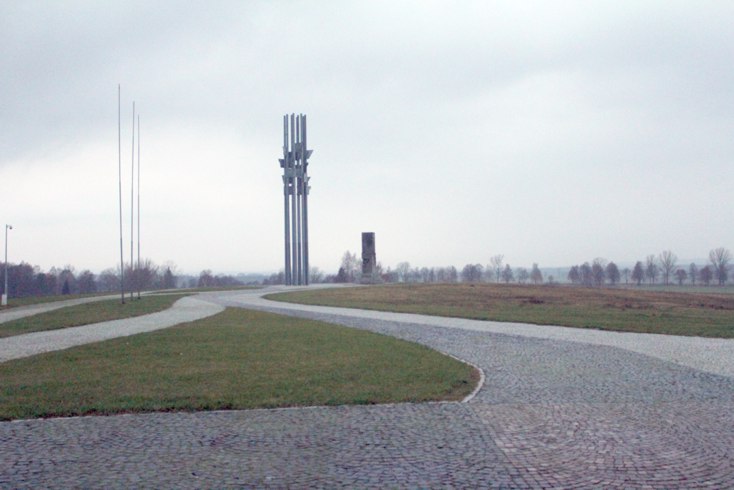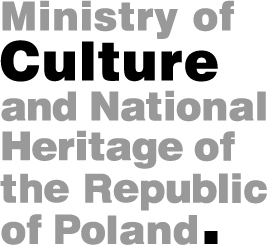|
|
Grunwald monument The official celebrations of the 550th Anniversary of the Battle and the inauguration of the monument became an opportunity for mass patriotic manifestations (around 30 thousand young people, belonging to the Polish Scouts Association (ZHP), Socialist Youth Union (ZMS), Peasant Youth Union (ZMW) and the Polish Students Association (ZMS). The chief officials of the Party, political support organisations and the top national authorities also came: Władysław Gomułka, Józef Cyrankiewicz, and Aleksander Zawadzki. After Gomułka's address, the Chairman of the National Council (i.e. the prime minister) Aleksander Zawadzki unveiled the monument. "We have created the first state in the millennial history of the Polish nation which serves the working masses in their effort to build a just and fair social system, namely that of socialism. On the rubble of Hitlerism, the working masses, living in this part of Germany, which was liberated by the Soviet Army, threw off the burden of capitalism and junkerdom, and now, being lead by the Socialist Party of German Unity, are reflecting upon and drawing conclusions from the entirety of German history. Thanks to this fact, our nation, for the first time in its history enjoys having a neighbour at our western border who is our ally and friend, namely the German Democratic Republic, with whom we form an ideological union, sharing the same goal of fighting for peace in Europe and the world. Meanwhile, Chancellor Konrad Adenuer of the Federal German Republic ceremonially put on the cloak of an honorary member of the Order of Teutonic Knights, to emphasise that the state which he governs cultivates the tradition and continues the policy of a most aggressive German militarism – that of the Teutonic Order and Hitlerism. Therefore, there are current and grave reasons why independent Poland, finally given just and fair borders, and surrounded by reliable allies, returns to the Victory of Grunwald in the first year of its Millennium celebrations. (...) In our care of the future of our nation and state we must carefully observe what happens on the other bank of the Elbe River. Drawing suitable conclusions from this observation, we will be increasingly strongly tied together in our Front for the Unity of the Nation, we will increase our economic and defensive potentials, reinforce our friendship with the Soviet Union, Chinese People's Republic and other countries of our Socialist Bloc which have renounced their past heritage and now long for peaceful co-existence with their neighbours. Union, power and watchfulness, as well as the peaceful and international position of the Polish nation are symbolised by this Monument, erected in the fields of Grunwald. May this Monument become a warning to any aggressor who would dare to assault the freedom of this land and threaten the independence of Poland and/or its friends and allies. (...) The Grunwald Monument is a symbol of our great victory which shattered the power of the obtrusive "Teutonry" and buried the hopes of Prussian militarism for several long centuries. The memory of Grunwald was a source of comfort and hope at the time of Poland's partition, instigated resistance in our nation, as well as our nations faith that the western and northern corners of its country would return to a unified motherland. Today, this Monument is the symbol of our will of resistance to the spirit of militarism now being revived in the Federal Republic of Germany, referring to the tradition of the Teutonic Order." (Aleksander Zawadzki's address during the Grunwald celebrations, 17 July 1960.) Translated by Marzena Beata Guzowska
1
2
|

Granite obelisk, photo from 2013. 
Monument to Grunwald Victory, photo from 2013 |
|||
| |||||
